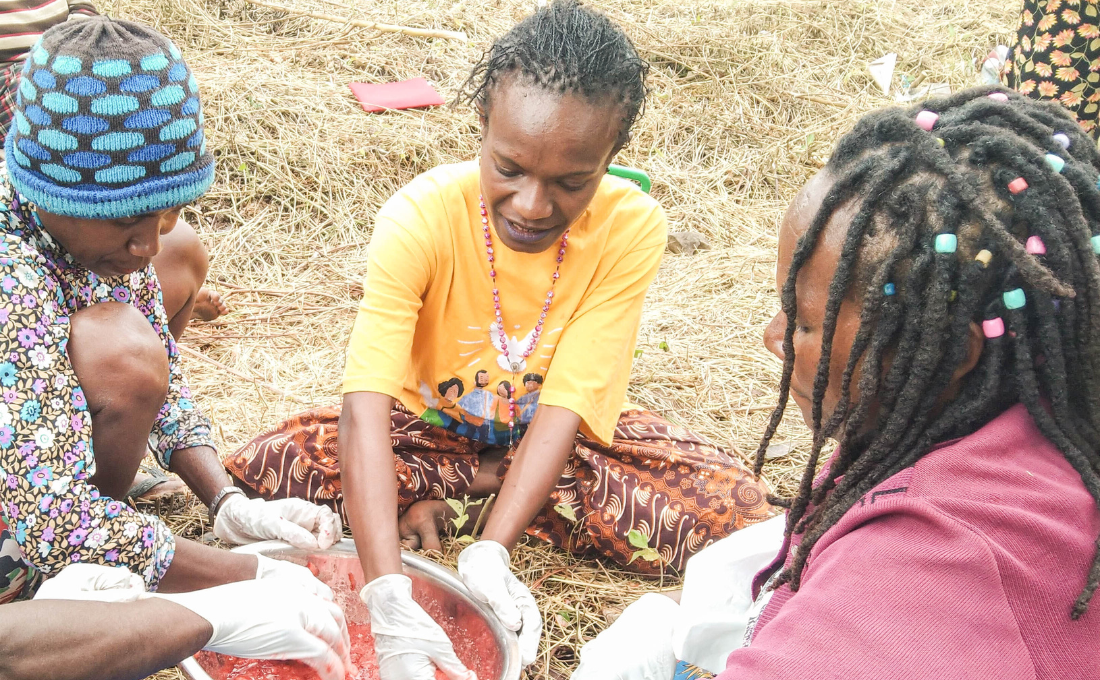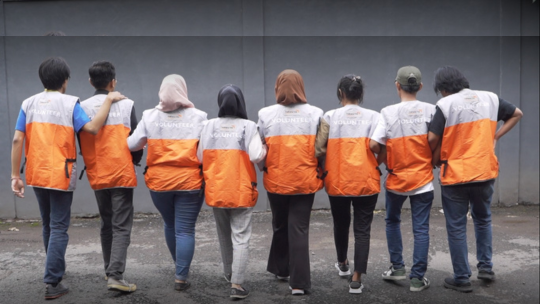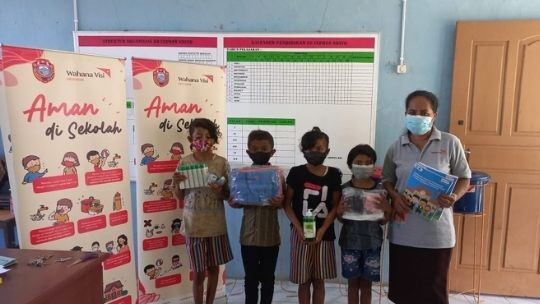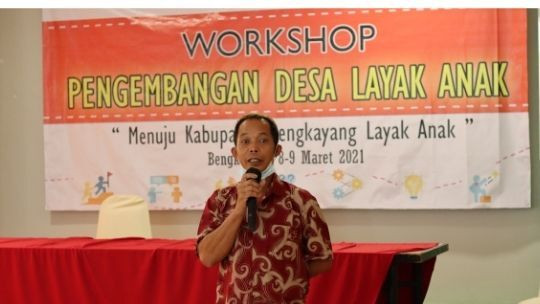Time for Papuan Women to Build Harmony

"I used to be very quick to be influenced by negative issues, quick to get emotional and couldn't stop myself from helping to solve problems. But after the training, I learned that the wrong communication at the wrong time can make the problem worse. I have become more able to hold myself back and listen to others first,"
Longing for a safe life without fear is the dream of Jurusella (33 years old) also known as Sella. She is a native Papuan woman who volunteered as a Sunday School teacher in Indonesia’s easternmost province of Papua. As a woman who has very limited access and participation in the community, Sella had to give up several times when violent conflicts occurred in her area. These were related to past conflicts, retaliation, distrust among the community, and homicide. When conflicts occur, Sella and her family temporarily stop working until the situation becomes safer.
"We have experienced situations where tribal wars have occurred due to misunderstandings along with past grudges. If an electric pole was knocked, it was a sign that we had to be alert. We couldn't do our activities for one to two days," said the mother of two children with a slightly trembling tone.
Not only inter-tribal wars, Sella, who is also a Church Servant, must deal with disputes between groups in the church that usually occur due to misunderstandings, poor communication and unfulfilled needs. Sella try to actively mediate and provide input if someone has a problem. In the past, Sella's way of giving input was often emotional, but since she learned about conflict resolution through the NOKEN Papua Project, she became more restrained and thoughtful in responding.
A Renewed Identity to Speak Up for Women
NOKEN Papua is one of Wahana Visi Indonesia's (WVI) projects that contributes to community social cohesion and capacity building of civil society actors in preventing violent conflict and finding conflict resolution. In these two years, the NOKEN Papua Project has trained 648 youth, 392 women and 153 community leaders in 9 sub-districts on WV’s Core Project Model of Empowered Worldview (EWV) for peacebuilding efforts. Participants learned to identify themselves as individuals and groups, understand how perceptions affect conflict, explore compassion through world and biblical figures, also gender perspective. They also learned to practice compassionate communication, recognize assets, build relationships according to the local context, and create a shared vision for acts of faith to address various issues in the community.
As one of the participants, Sella has gained a new mindset about herself. She truly believes that as a woman created by God, she should continue to have a positive influence and wants another woman to do the same.
"I realized that God created us to bring peace and harmony and not to create conflict. Through the training, we understand what to do because we learned what conflict is, its impacts and how to deal with it."
Sella has been an inspiration to her community. Her courage to speak up has been fruitful. Family and community have listened to her. The secret to her success is asking for guidance from the Holy Spirit before expressing her opinions. She always adds the Word of God because of the local community context. Her mindset has changed: 'Women also have the right to speak up!'. She hopes that the EWV for peacebuilding will be accepted by other groups and leaders from various religious and tribes, and people will interact with more trust.
Empowered Individuals and Community for Peace
Sella and her friends found out that alcohol consumption, especially among young people, can lead to conflicts. When individuals become intoxicated and lose control, it can result in unavoidable arguments. This discovery was made after conducting a 'Conflict Analysis' with WVI, which revealed that alcohol consumption has negative effects such as fighting, roadblocks, and domestic violence. This phenomenon prompted them to take definitive action by engaging religious leaders to preach on the dangers of alcohol abuse through sermons.
Sella and the youth group initiated a social cohesion activity called the ‘Baliem Cultural Art Festival’, which involved the other youth groups to promote community peace. In addition to showcasing their creativity, the youth also bond together and eliminate any suspicions.
"We are very happy with this Art Performance activity; we can meet each other and get to know other friends. We hope we can continue this to develop our potential," said Kristina, one of the organizers. The youth were thrilled to engage in more positive activities than negative ones, such as consumption of alcohol. They felt empowered to make better choices and were excited to see the positive impact on their lives.
Sella strongly believes that creating a safe and comfortable forum for discussing social issues within the community is crucial in Papua’s context. To achieve this, it is important to involve not only youth and religious leaders but also local government and cultural leaders.
"The problem will never be resolved if we do not forgive each other because of past problems that still exist. I ask that we resolve this problem, because right now my child and other children are still traumatized," said Sella in the forum with leaders.
Despite getting a challenge to speak up, Sella’s dedication to make a change never goes away. She understands that it may take time and effort, but she is motivated by her hope for a better future.
"I'm so grateful that now my voice is being heard. I hope the community will not only listen, but also transform. Let's work together to decrease violent conflicts so that we can all live life to the fullest. Together, we can make sure that there are no more violent conflicts in our area!" she said optimistically.
Within two years of NOKEN Papua Project implementation, there has been a transformation of hearts, minds and relationships. It was reflected by 78% of youth stated that they would not join violent actions and groups. In the other hand, 73.68% of women, including Sella, were confident in their ability to promote harmony and economic development within their communities. Sella and the new generation of youth will continue to empower other Papuan youth and women to achieve peace and transform their futures.
Author: Debora Napitupulu (NOKEN Project Manager)
Editor: Mariana Kurniawati (Communication Executive)



